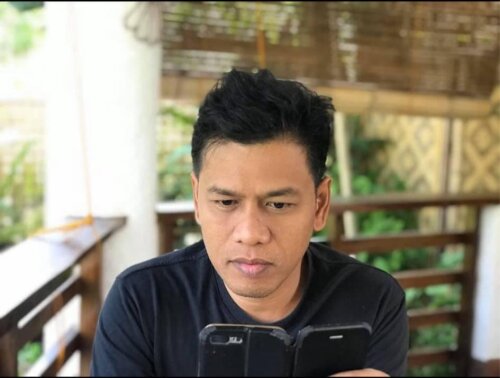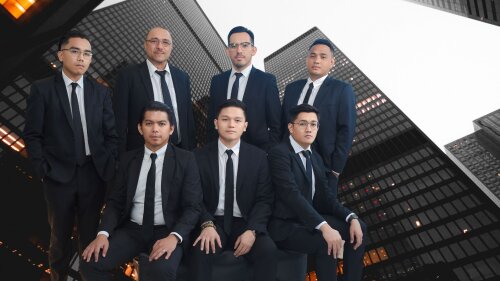Best Mining Law Lawyers in Cagayan de Oro
Share your needs with us, get contacted by law firms.
Free. Takes 2 min.
List of the best lawyers in Cagayan de Oro, Philippines
About Mining Law in Cagayan de Oro, Philippines
Mining Law in Cagayan de Oro, Philippines, is a specialized area of law that governs the exploration, extraction, utilization, and management of mineral resources within the region. The legal framework for mining is shaped primarily by Philippine national laws such as the Philippine Mining Act of 1995 (Republic Act No. 7942) and its implementing regulations, but also includes local ordinances and environmental rules set by both city and provincial governments. In Cagayan de Oro, mining activities are subject to various permitting procedures and compliance with environmental, social, and safety standards to ensure responsible resource management and protection of local communities and ecosystems.
Why You May Need a Lawyer
There are several situations in Mining Law where legal assistance is necessary. These include:
- Securing mining rights, permits, or licenses from government agencies
- Navigating land ownership, ancestral domain claims, and surface rights issues
- Understanding and complying with environmental regulations and impact assessments
- Dealing with disputes involving mineral rights, boundaries, or operational impacts
- Drafting or reviewing agreements such as mineral production sharing agreements or joint ventures
- Facing regulatory enforcement actions, audits, or administrative penalties
- Undertaking due diligence for investments or acquisitions in mining projects
- Addressing labor, health, and safety standards within mining operations
- Managing community relations, including consent and benefit-sharing arrangements with local or indigenous groups
- Seeking legal remedies for damages caused by mining activities
Local Laws Overview
Cagayan de Oro adheres to national laws and mining regulations, but also implements specific local ordinances that further regulate mining activities. These may require additional permits or environmental compliance certificates at the city or provincial level. Key aspects include:
- Regulation of small-scale mining and quarrying, in line with Republic Act No. 7076 (People's Small Scale Mining Act of 1991)
- Local government involvement in issuing permits and monitoring mining activities within their jurisdiction
- Mandates for community consultation, especially with indigenous peoples under the Indigenous Peoples Rights Act (IPRA)
- Strict environmental compliance as enforced by the Department of Environment and Natural Resources (DENR) and the local Environmental Management Bureau (EMB)
- Alignment with regional development plans and the City’s comprehensive land use plan to identify areas open or closed to mining
- Imposition of local taxes, fees, and environmental funds for mining-related activities
Frequently Asked Questions
What is the main law governing mining in the Philippines?
The primary law is the Philippine Mining Act of 1995 (Republic Act No. 7942), which sets the framework for exploration, development, utilization, and conservation of mineral resources.
Do I need a local government permit to start mining in Cagayan de Oro?
Yes, in addition to national permits, you must secure local permits from the city or provincial government, especially for small-scale mining or quarrying.
How do I obtain a mining permit?
You must apply through the Mines and Geosciences Bureau (MGB) for large-scale operations, or the Provincial Mining Regulatory Board for small-scale mining, and meet all documentary and environmental requirements.
Are there protected areas where mining is not allowed?
Yes, mining is generally not allowed in protected areas such as watersheds, national parks, ancestral domains without consent, and zones designated as non-mining by local ordinances.
What environmental requirements must be met?
You must secure an Environmental Compliance Certificate (ECC), submit an Environmental Impact Statement (EIS), and comply with ongoing environmental monitoring and reporting.
Can foreigners own mining rights in Cagayan de Oro?
Foreign ownership is generally limited to 40 percent. However, foreign companies may enter into financial or technical assistance agreements with the government for large-scale exploration and development.
What are the common disputes in mining?
Disputes often involve boundary issues, overlapping claims, environmental damage, compensation for landowners, and conflicts with indigenous communities.
How can communities participate or object to mining projects?
Communities, especially indigenous peoples, have rights to consultation and can grant or withhold Free and Prior Informed Consent (FPIC) for projects within their ancestral lands.
Are there penalties for illegal mining?
Yes, penalties may include fines, cancellation of permits, confiscation of equipment, and even criminal prosecution for unauthorized mining activities.
Who enforces mining regulations in Cagayan de Oro?
Enforcement is carried out by the Department of Environment and Natural Resources, the Mines and Geosciences Bureau, the local government, and the provincial or city Environment and Natural Resources Office.
Additional Resources
If you need further information, guidance, or support concerning Mining Law in Cagayan de Oro, the following resources can be valuable:
- Mines and Geosciences Bureau (MGB) Region X - Regional office responsible for issuing permits and monitoring compliance
- Department of Environment and Natural Resources (DENR) - National agency overseeing environmental protection in mining
- City Environment and Natural Resources Office (CENRO), Cagayan de Oro - Handles local environmental concerns, permits, and monitoring
- Provincial Mining Regulatory Board - Governs small-scale mining at the provincial level
- Legal Assistance Centers - Many local universities and the Integrated Bar of the Philippines (IBP) provide free or low-cost legal consultations
- National Commission on Indigenous Peoples (NCIP) - For concerns related to ancestral lands and FPIC procedures
Next Steps
If you are considering entering the mining industry or are already involved in mining activities in Cagayan de Oro and require legal assistance, take the following steps:
- Identify the specific legal issue or stage of the mining project where assistance is needed, such as permitting, compliance, agreements, or dispute resolution.
- Gather all relevant documentation including existing permits, maps, contracts, and communications with government agencies or stakeholders.
- Consult with a lawyer or law firm experienced in Mining Law and environmental regulations in the Philippines, especially those familiar with local procedures in Cagayan de Oro.
- Reach out to the above-mentioned governmental bodies or legal assistance centers for additional guidance or to verify the legitimacy of your permits and rights.
- Maintain records of all transactions, permits, and legal proceedings for compliance and future reference.
- Engage with affected communities and stakeholders in a transparent manner to minimize conflict and obtain necessary consents.
By following these steps and seeking specialized legal help, you can protect your interests while ensuring compliance with the law and responsible mining practices in Cagayan de Oro.
Lawzana helps you find the best lawyers and law firms in Cagayan de Oro through a curated and pre-screened list of qualified legal professionals. Our platform offers rankings and detailed profiles of attorneys and law firms, allowing you to compare based on practice areas, including Mining Law, experience, and client feedback.
Each profile includes a description of the firm's areas of practice, client reviews, team members and partners, year of establishment, spoken languages, office locations, contact information, social media presence, and any published articles or resources. Most firms on our platform speak English and are experienced in both local and international legal matters.
Get a quote from top-rated law firms in Cagayan de Oro, Philippines — quickly, securely, and without unnecessary hassle.
Disclaimer:
The information provided on this page is for general informational purposes only and does not constitute legal advice. While we strive to ensure the accuracy and relevance of the content, legal information may change over time, and interpretations of the law can vary. You should always consult with a qualified legal professional for advice specific to your situation.
We disclaim all liability for actions taken or not taken based on the content of this page. If you believe any information is incorrect or outdated, please contact us, and we will review and update it where appropriate.











